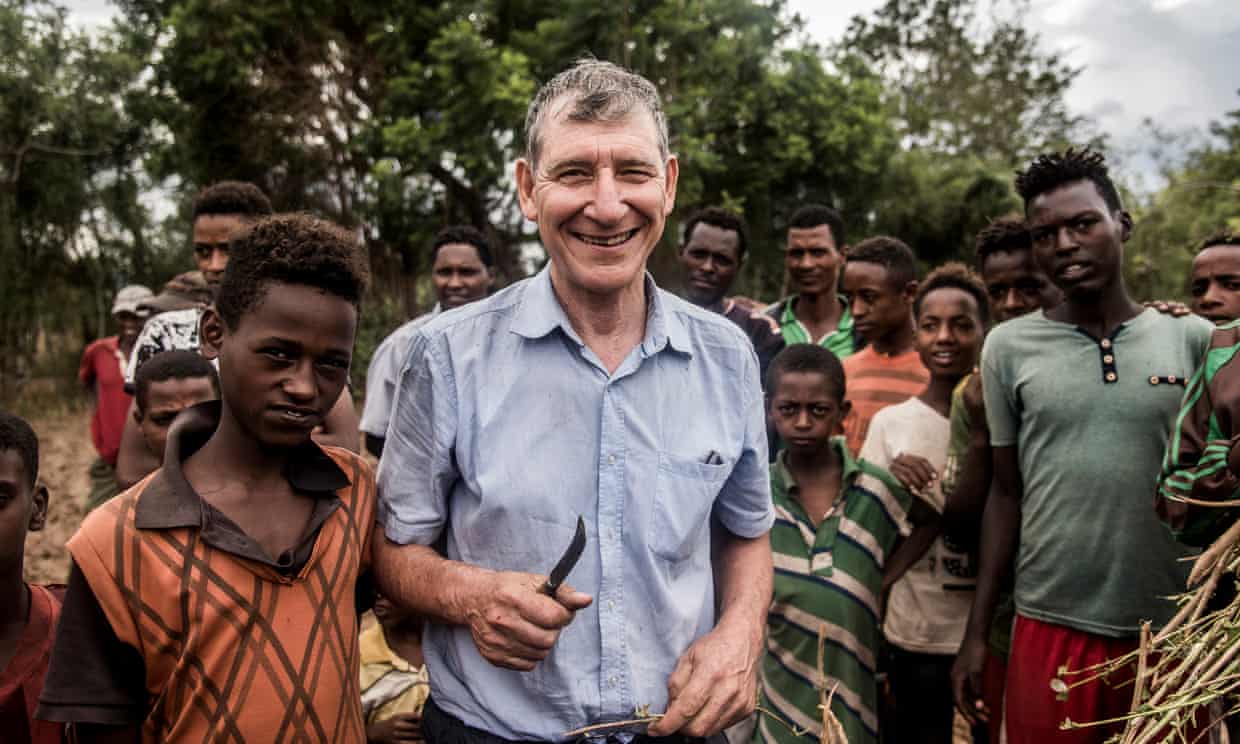Interview by Meredith Lake (ABC Radio, Australia) with Tim Costello and myself about the role of faith in our own lives and in today’s world. Yes, public radio. Times are changing when it comes to talking faith in secular societies. Hope you enjoy (despite my English). It was a great pleasure and privilege doing this with Tim. Recorded on 19 March 2019. Click here for more information on the website of ABC Radio.
Technologies that can make this world a better place – part 2: reforestation 2.0
Promising new technologies can suddenly make the future look a lot less gloomy. Today part 2: reforesting the world’s most barren lands by nurturing “the underground forest” and allowing it to heal itself.

Meet Tony Rinaudo, also known as the Forest Maker or Tree Whisperer, one of the very few people on earth whose achievements can be seen on satellite images. This man is responsible for regenerating no less than 240 million trees in the last 30 years.
In 1983, after two years of doing reforestation ‘the old way’ in Niger, namely by planting trees, Rinaudo despaired:
I was in charge of a reforestation project that was failing miserably, it wasn’t that I was particularly dumb, it was the same story all over west Africa. And I remember the frustration that just hit me: north, south, east, west, was a barren landscape, and I knew perfectly well that 80 or 90% of the trees I was carrying [in my car] for planting would die.
But then Rinaudo took a closer look at the few bushes scattered around the land. He knew these bushes were in fact trees that had been hacked down. Suddenly he wondered: what if we would prune these left-over trees and allow them to grow?
In that moment, everything changed. We didn’t need to plant trees, it wasn’t a question of having a multi-million dollar budget and years to do it, everything you needed was in the ground.
Rinaudo had found an “embarrassingly simple solution” to a seemingly insurmountable problem. The root system of the chopped down trees remained alive under the ground; a whole “underground forest” was still available, as Rinaudo would describe it. The only thing needed was some human care and protection, allowing the trees to grow and heal themselves. In Rinaudo’s words: the only thing needed was some humans “working with nature rather than hitting it on the head all the time.”
After his discovery, Rinaudo had to overturn generations of accepted wisdom, as well as a resistance to giving some land back to nature.
When you’ve got people who are on the edge of starvation every year, not just in famine years, you’ve got this perception that you need every square inch of farmland to grow food crops. And here’s this nut telling people they should sacrifice some of their land for trees.
But as soon as farmers started to see the results of Rinaudo’s method (called Farmer-Managed Natural Regeneration, or FMNR), the new technique took off. And here we are: 3 decades later and 240 million trees richer. At the UN’s global climate talks in Katowice (December 2018), Rinaudo explained the profound impact of these trees. They:
- improve farming yields
- reduce ground temperatures
- hold water in the soil
- provide firewood
- make farming in hot places more comfortable
- and last but not least: all these trees act as a powerful carbon sink, with the potential to draw in billions more tonnes of carbon

A satellite image of the Humbo region of Ethiopia, showing tree cover in 2005 (left) and in 2017 (right). (Courtesy of World Vision)
Working with World Vision since 1999, Rinaudo has taken his technique across the world, from arid Somaliland to tropical East Timor. His big dream: to see FMNR introduced into at least 100 countries by 2030, as a powerful way of improving people’s lives and pursuing Sustainable Development Goal #15.
In September 2018, Rinaudo received the Right Livelihood Awards, often described as the Alternative Nobel Price. Rinaudo received the award “for demonstrating on a large scale how drylands can be greened at minimal cost, improving the livelihoods of millions of people. [Rinaudo’s reforestation method] has the potential to restore currently degraded drylands with an area the combined size of India.”
Below a video about Rinaudo’s work and impact, produced by World Vision. Much more information can be found on the FMNR website.
